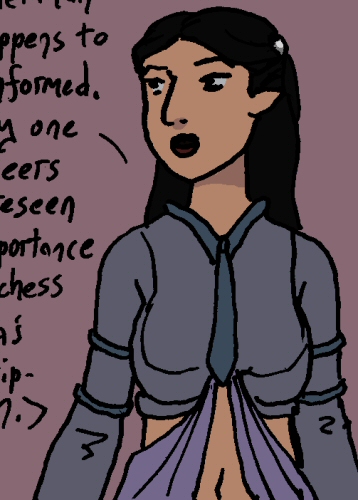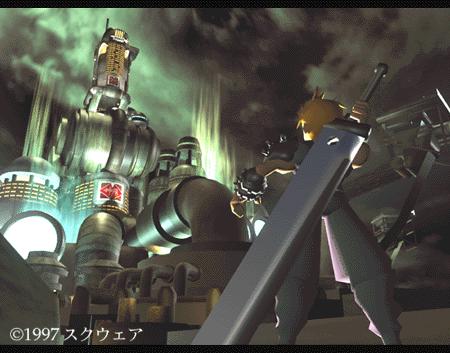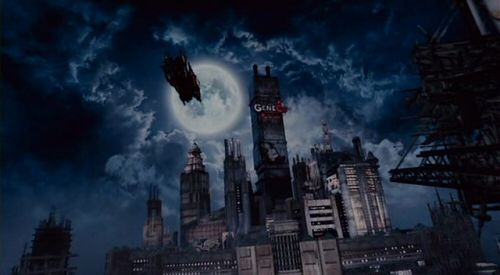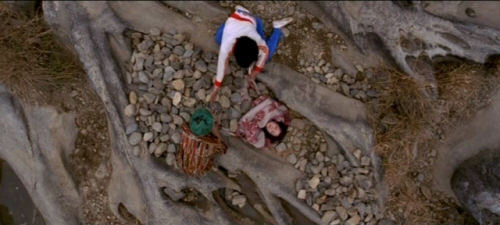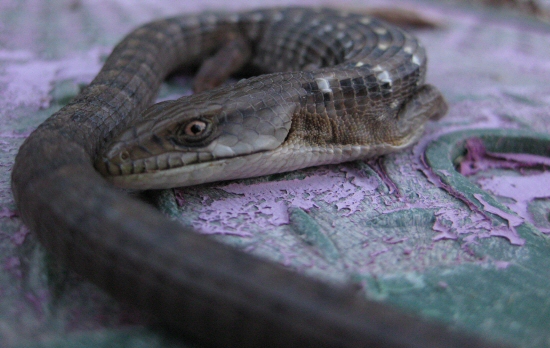Twitter Sonnet #121Dough Thor frowns at no cards on a treadmill.
Beneath his beard is a spongy shark gut.
It's a dusty plastic egg bin to fill.
Aging improves vintage prizes somewhat.
The tacos to-day forgot Mexico.
George Washington is drowning in coffee.
Hope lives on in Gunbuster's Noriko.
Heavier than Prince's discography.
It's wrong to cut off Christopher Lee's tongue.
A serious sniper has killed Wilhelm.
Wild songs should be kept short when they're sung.
Movie drunks just sometimes notice the film.
Popular's a drink that makes folks smaller.
But somehow everyone's become larger.As you can probably tell from the poem, I did see Tim Burton's
Alice in Wonderland last night. I thought I was going to hate it, but I didn't. As I watched, I thought to myself what a misanthrope I can be sometimes. What Tim Burton's made is not an adaptation of the books, but a movie for the mass audiences that is a tribute to how well the
Alice books have survived in the public consciousness. This is why nearly all the characters in the movie are those with which people who've never read the books are familiar and why it continues common misconceptions about the stories, such as the combination of the Queen of Hearts and the Red Queen characters, a confusion which had already begun in Lewis Carroll's lifetime, and which,
according to Wikipedia, Carroll addressed by saying;
I pictured to myself the Queen of Hearts as a sort of embodiment of ungovernable passion - a blind and aimless Fury. The Red Queen I pictured as a Fury, but of another type; her passion must be cold and calm - she must be formal and strict, yet not unkindly; pedantic to the 10th degree, the concentrated essence of all governesses!But to take issue with Burton's film for not honouring the characters is to miss the point. This is a movie for the people of to-day and their conceptions of
Alice in Wonderland, a popular film, not an attempt to faithfully adapt the books. The very essence of the books is different--I realised because the books have a much more 19th century point of view. I came to this realisation when, as I watched the movie, I wondered to myself why it felt so much
smaller than the books. One of the reasons is the film's plot is concentrated from beginning to end on a specific goal; Alice winning the war. The books, on the other hand, almost constantly lampoon the human tendency to impose order on the world, in ways as small as the ridiculous etiquette at a tea party, to as large as the very concept of war, where we see the Red and White Queens in
Through the Looking Glass engaged in a conflict defined by seemingly arbitrary rules and as likely to join forces socialising with Alice as they are to fight one another. The White Knight is portrayed as a pathetic, quixotic character who earns our sympathy for his commitment to his delusion, not for the actual effect his resolve has on the world. In short, the books communicate to us what Carroll saw as the child's perspective on the silliness of adult preoccupations.
At first, I thought what I was seeing was simply Burton's philosophy clashing with Carroll's. But then I remembered how helpless, inevitably incompetent, and blinded by ego the high ranking military men, even Napoleon, are portrayed by Tolstoy as being in
War and Peace. I couldn't remember any great book of the 19th century I've read that truly celebrated war. The attitude, in both the
Alice books and
War and Peace, is that ultimately war is an absurdity that only solves things according to the points of view of the people regarding them from a biased perspective.
Such a concept would make little sense to a modern audience, particularly in light of recent popular movies. War, it is now thought, is not absurd so long as one side is in the right, and it's implicitly accepted that one side
can be thoroughly right.
Now, one might say this commentary on the nature of war is irrelevant when one considers that the war depicted in the movie is a metaphor for Alice's internal conflict, that in fighting the Jabberwock (for some reason, referred to in the film as the "Jabberwocky", which was actually the name of the poem about the monster) she is defeating her own internal demons. But I would say this is just as dependent on a modern perspective on the human mind as the absence of the portrayal of such a conflict in the books is due to a 19th century perspective. When I was trying to decide how to describe the difference I was discerning in the two works, I asked myself, "Is the film more masculine and the books more feminine? Is the film more American and the books more English?" The former dynamic may be only valid in outdated conceptions of masculine/feminine, though the film almost seems to nod to this concept as the Hatter refers to Alice as "he" several times, and Alice's assertive nature in the film is clearly portrayed as considered unfeminine or at least unladylike by the real world people around her. The latter contrast, American/English, may be more appropriate, as the world has changed from being led by European ideas to being led by American ideas, which are more about proving oneself, concerned with the idea that everyone must make a mark on the world in some to establish the reality of oneself.
The other reason the movie felt smaller to me was something Burton did quite intentionally, according to a quote from him in
the film's Wikipedia entry;
In prior versions, Burton said "It was always a girl wandering around from one crazy character to another, and I never really felt any real emotional connection." His goal with the new movie is to give the story "some framework of emotional grounding" and "to try and make Alice feel more like a story as opposed to a series of events."I could see this agenda as I watched the movie, and I was reminded of how the makers of the
Lord of the Rings movies consciously attempted to make the movies centred on Frodo's story as much as possible, and it seems this philosophy of focus on a particular character's struggle is deemed essential to engage modern audiences in a fantasy film. Which may very well be true, but I'm curious as to why Burton ascribed the episodic nature of the
Alice stories only to prior film adaptations when in fact the books are very much thusly segmented, almost always on a chapter by chapter basis, for Alice's series of adventures. The books feature Alice meeting characters and spending some time conversing with them with no particular overarching objective. The second book does have the ongoing chess plot, wherein Alice the pawn is working towards becoming a Queen, but it ends up functioning more as a long setup for a joke, again on the adult world. The film, meanwhile, introduces Tweedledee, Tweedledum, the Dormouse, the Dodo, and the White Rabbit all at once, and all of them are bent on the same task. All of this is designed with the explicit intention of making things move along more efficiently, getting the audience from the beginning of the movie to the end. So consequently what seems like a digest version of the story to me seems to general audiences like a respectful management of their time.
But, as I said, I didn't hate the film, there were several things I liked. I'd read that this movie shared an art designer with
Avatar, and something of
Avatar's flora can be seen in this Wonderland, but the look of
Alice in Wonderland benefits greatly from a larger colour palette than
Avatar. So instead of the muddy, greyed out look of
Avatar, we have shapes sharply defined by reds contrasting with whites and greens and blacks. I particularly loved Anne Hathaway's look and I thought her performance brought a lot to what would otherwise have been a very minor role. Some reviews I've read have lamented that Crispin Glover wasn't given a more interesting role, but I actually thought the Knave of Hearts suited him very well--rather than taking a wonderfully weird actor and giving him someone over the top and wacky, we get someone more subdued, taking advantage of Glover's natural weirdness to deftly suggest depth in a very natural way.
I liked Depp as the Mad Hatter a lot more than I thought I was going to. The scene introducing him and the March Hare seemed to echo the great scene from the 1951 film, particularly in the March Hare, while Depp's more subtle madness was quite different from Ed Wynn, and I was reminded of Peter Cook and Michael Gough as the Hatter and Hare in the Jonathan Miller film and their madness apparently borne of a sort of infantile insecurity. Depp's switching of accents seemed suggestive of someone theatrical with a low self esteem, and I would very much have liked to have seen the actual dialogue from the book performed by these actors.
Mia Wasikowska looked the part far more perfectly than she did in the promotional material somehow, but found her performance a bit disappointingly limp. I would have much preferred someone like Anne Hathaway in the role.
So, anyway, final verdict--it's a mildly good film to me, probably a better one to most everyone else. When I got to my car, I needed some Morrissey STAT.






